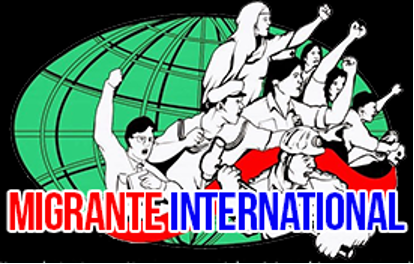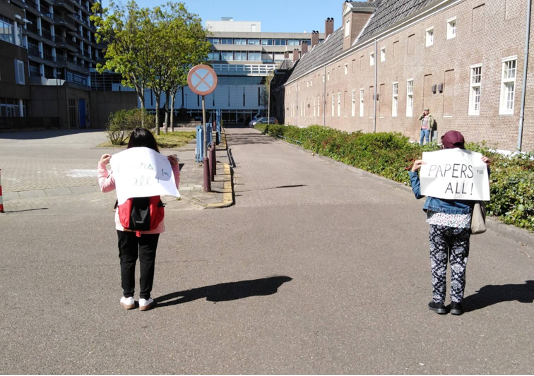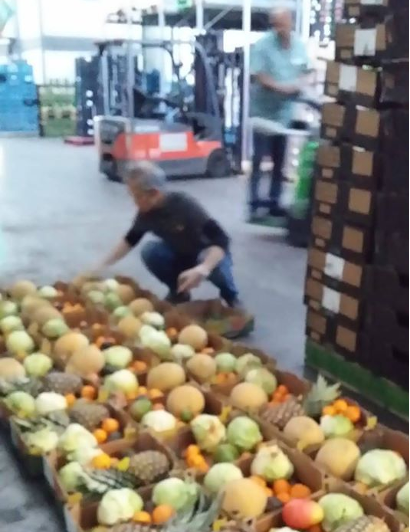This blog on Filipino migrant and community solidarity, between Bayanihan and Duterte, was written by Paul-François Tremlett from The Open University and Helen Hintjens from the International Institute of Social Studies in the Netherlands.
In the Philippines, ordinary Filipinos are experiencing hardships as a result of the pandemic. As recently as April 20, Ana Patricia Non set up a ‘Community Pantry’ on her street in Quezon City. Her initiative was widely reported in the Philippines press and has been quickly copied across the archipelago, with pantries springing up all over the place. The “pantry” itself was just a small cart, loaded with foodstuffs and other essentials. It included a sign, which read: “magbigay ayon sa kakayahan, kumuha ayon sa pangangailangan” (“give what you can, take what you need”). Things turned sour when Army Lt. Gen. Antonio Parlade Jr., chief of Southern Luzon military Command, without any evidence, linked ‘Community pantries’ to the Communist Party of the Philippines. “Red-tagging” involves labelling those critical of government either as “communists” or as “terrorists”.
This practice has been condemned by the Campaign for Human Rights in the Philippines and by Amnesty International. That a handcart loaded with free food and a sign encouraging donations should elicit such a response from the military has thrown into sharp relief the contrast between an often-eulogised Filipino socio-cultural practice of mutual aid and the violence of the Duterte Presidency.
Filipino migrants in UK and Europe have been disproportionately exposed to Covid-19, concentrated as they are in frontline care roles; nursing, elderly and childcare and domestic work. As work documenting Filipino migrant experiences during the pandemic shows, many Filipino migrants have been hit hard, facing a mix of overwork in the care sector, illness and exhaustion. Undocumented Filipinos have long had difficulties accessing medical care, and on top of that now face loss of waged work, declining incomes and difficulties paying rent and supporting families at home. But in the Covid-19 Chronicles from the Margin website, we see how, since the start of this pandemic, bayanihan principles of mutual aid have translated into practical solidarity among Filipino migrants. Undocumented domestic workers living in The Netherlands, Filmis, a support organisation, has organised mutual support for Filipino migrants throughout the pandemic.
When simple acts of solidarity can result in public accusations of supporting communist or terrorist groups, at home in the Philippines, this reinforces migrants’ uncertain position. In September 2020, accounts spreading fake news about Filipino diaspora leaders and organisations, including Migrante, were closed down by facebook. And monitoring and repression of Filipino migrant groups continues. Simply by drawing attention to the plight of ordinary Filipino migrants, and showing practical solidarity, Filipino diaspora leaders face up to a difficult reality, caught between ‘a rock and a hard place’. As violence and its threat become the glue holding the centre together, it becomes more important than ever to reassert the fundamental principles of reciprocity that underpin bayanihan.

Migrante International describe themselves as “a global alliance of grassroots migrant organizations of overseas Filipinos and their families in 24 countries. We uphold and advance the rights and welfare of overseas Filipinos within the framework of peoples struggle for democracy, justice and peace”.



If you have enjoyed reading this blog post please share by clicking the buttons. Sharing will also help us get our message to more people.